Emergency Preparedness for Gluten-Free Individuals
In times of emergencies, it’s important for everyone to be prepared, and individuals with dietary restrictions such as a gluten-free diet need to take additional steps to ensure they are prepared in case of an emergency. For all my gluten-free friends, here are some tips for emergency preparedness for gluten-free individuals.
The things I feel bad about regarding people who must eat gluten-free are the breads, the flour tortillas, dinner rolls, and cinnamon rolls we all love to eat. But, keep in mind when you stock your food storage you may still be able to purchase freeze-dried fruits, vegetables, and meats if they were produced in a wheat-free environment.
When a natural disaster or power outage strikes, Mother Nature doesn’t help protect those with different food needs. Those of us with unique food or other allergies need to be self-sufficient and look out for ourselves. Here are some handy tips to help you.
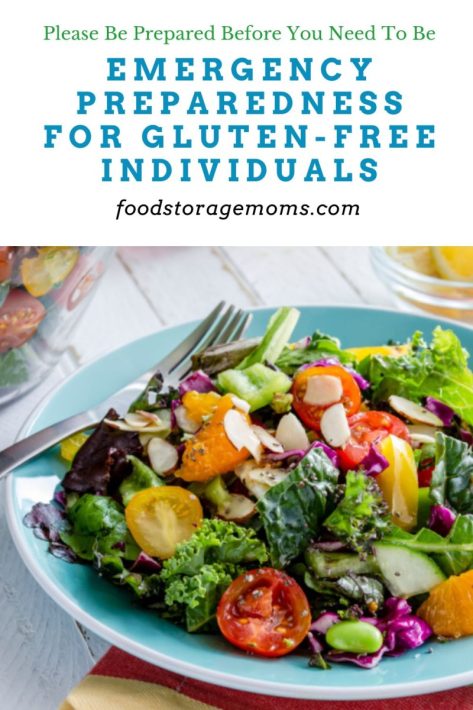
I would practice making the breads you can eat or find out where you can purchase them, like at Costco. Years ago I made some gluten-free bread and I found out later I bought it for half the cost at Costco. Most of the flours used for GF bread have a short shelf life, so be sure to check out those expiration dates. Keep those flours in the freezer if the package states that you can.
Grains Tend to be the Culpret When It Comes to Gluten
If you’ve dealt with gluten issues in your family you know the most common food ingredients that can cause celiac disease. For those who may be new to the subject, people with gluten intolerance have to steer clear of wheat and wheat varieties and any derivatives. That includes gluten-containing food items like spelt, durum, kamut, wheat bran, wheat germ, and wheat starch, among a long list.
Other gluten grains to avoid are rye, barley, and triticale.
There are common foods that contain these grains and we may not think about some of our favorites. You’ll find that most bread, bagels, and rolls have gluten, along with pastries, many cereals, pasta, and noodles. Also, be careful of cakes, biscuits, croutons, veggie meat substitutes, malts and malt extract, and many flavorings.
Emergency Preparedness for Gluten-Free Individuals
1. Create a Gluten-Free Emergency Kit
Assemble a dedicated emergency kit that includes gluten-free non-perishable food items. Consider items such as gluten-free energy bars, canned fruits and vegetables, nut butter, gluten-free crackers, and dried fruits. Ensure that the kit is easily accessible and contains enough supplies to sustain you for at least three days. What Are 20 Basic Items in an Emergency Kit?
2. Keep a List of Gluten-Free Safe Foods
Compile a list of gluten-free foods that you can safely consume. This list will be invaluable in emergencies when information access is limited. Include both perishable and non-perishable items, and make sure to note any specific brands or products that are safe for your gluten-free diet. High-Calorie Foods for Emergencies
3. Maintain a Gluten-Free First Aid Kit
Ensure your first aid kit is gluten-free by checking medications and supplies. Many medications and supplements may contain gluten as a binding agent. Discuss gluten-free alternatives with your healthcare provider and update your first aid kit accordingly. This ensures you can address your health needs without compromising your dietary requirements. Types of Medicines You Need for a First Aid Kit
4. Communication is Key
Inform emergency responders and healthcare providers about your gluten-free dietary needs. Create a medical alert card or wear a medical alert bracelet specifying your dietary restrictions. This can be crucial in case of medical emergencies, ensuring that you receive suitable and safe nutrition in a hospital or emergency shelter. Communication Options for Your Family During a Disaster
5. Stay Informed About Gluten-Free Emergency Resources
Research gluten-free emergency resources available in your area. Identify gluten-free shelters, food banks, and emergency meal services that can provide suitable options during crises. Keep this information handy and share it with friends and family who may be supporting you during emergencies.20 Healthy Habits for Emergency Preppers
In case of evacuations, be prepared to have items served to you in shelters or from food banks that aren’t suitable based on your dietary needs. Don’t be surprised if you see soups, french fries, potato or tortilla chips, granola, stuffing, soy sauce, processed meats, and dressings that include vinegar and marinades. These are all suspect and should be avoided. For those who like their beers, remember that beers, ales, and lagers are made with grain-based ingredients.
6. Educate Emergency Contacts
Ensure that your emergency contacts know your gluten-free diet and understand its implications. Share information on safe food options and emergency plans, so they can assist you effectively. A support network that understands your dietary needs can alleviate stress during challenging times. The Top 10 Most Important Things to Do as a Prepper
7. Pack Portable Cooking Equipment
Include portable cooking equipment in your emergency kit. This may include a portable stove, cookware, and utensils. While many emergency shelters provide meals, having the ability to prepare your food ensures that you can maintain a gluten-free diet even in challenging circumstances and without the fear of cross-contamination. Cooking From Scratch Is It A Thing Of The Past?
8. Water and Hydration
In emergencies, access to safe water is critical. Ensure you have a supply of safe clean water or be prepared to filter the water with something like purification tablets. Dehydration can exacerbate health issues, so it’s essential to have access to safe hydration sources. 50-Year Shelf Life Canned Water-Blue Can Pure Water
Because gluten-free has become a frequently used marketing catchphrase, you might see bottled water with a label that states it’s gluten-free. We all know that water is naturally gluten-free, so don’t be fooled into paying for “premium” water just because it’s promoted as safe for your diet.
9. Plan for Special Occasions and Celebrations
Consider how you will manage special occasions or celebrations that may occur during emergencies. If possible, include a small treat or snack in your emergency kit for such occasions, ensuring you can maintain a sense of normalcy and joy even in challenging times. How to Be Tougher Mentally As a Prepper
10. Regularly Update and Review Your Emergency Plan
As circumstances change, so should your emergency plan. Regularly review and update your gluten-free emergency preparedness kit, ensuring that all items are within their expiration dates and that your list of safe foods remains current. Stay informed about new gluten-free products and resources that may enhance emergency preparedness. Emergency Preparedness-Make A Plan
What are some good alternative foods to help avoid gluten?
There are several food items that you can use to make most of your favorite meals and be gluten-free. Consider trying some of the following as whole items or flour:
- Quinoa
- Rice
- Soy
- Corn
- Millet
- Sorghum
- Oats
Is there a difference between celiac disease, gluten intolerance, and an allergy to grains?
Celiac disease is a more serious health issue since it prompts our immune system to attack our gut. This attack can cause real damage to the lining of our intestines and make it hard for our body to absorb sufficient nutrients. The damage to your intestines can lead to diarrhea, fatigue, abdominal pain, some weight loss, constipation, and even anemia. There can be a loss of bone density, blisters and rash, mouth ulcers, spleen dysfunction, and elevated liver enzyme activity. It will affect adults and children differently in most cases.
Gluten intolerance may prompt similar symptoms to celiac disease, but it doesn’t have the related immune system challenges to the intestines. It is rather a gluten sensitivity and is often referred to as non-celiac gluten sensitivity. Symptoms most often include being very tired, experiencing nausea, feeling bloated with gas, headache, abdominal pain, and joint pain.
Gluten allergies have similar symptoms but are generally less severe. If you have any of the symptoms listed, make an appointment with your healthcare provider and determine what your ailment might be.
Gluten-Free Items
- King Arthur Bread Flour, Gluten Free
- King Arthur, GF Measure for Measure Flour (for baking, not for making bread)
- GF Power Up Premium Trail Mix
- GF Pure Organic Layered Fruit Bar
- Where I buy my garden seeds: SeedsNow
More Tips
- Harnessing Sunlight for Emergency Preparedness
- Emergency Preparedness in the New Year
- Cash Stash: Standby for Emergencies
Final Word
Emergency preparedness is a responsibility we all share, and individuals on a gluten-free diet must take additional steps to safeguard their nutritional needs. Always stay informed, communicate your needs effectively, and empower yourself with the knowledge and resources necessary to navigate emergencies, even if you or someone you love is following a gluten-free diet! May God Bless this World, Linda
Copyright Images: Organic Vegetarian Salad Depositphotos_78370236_S by TeriVirbickis, Gluten Free Products Depositphotos_26803987_S by Lucidwaters

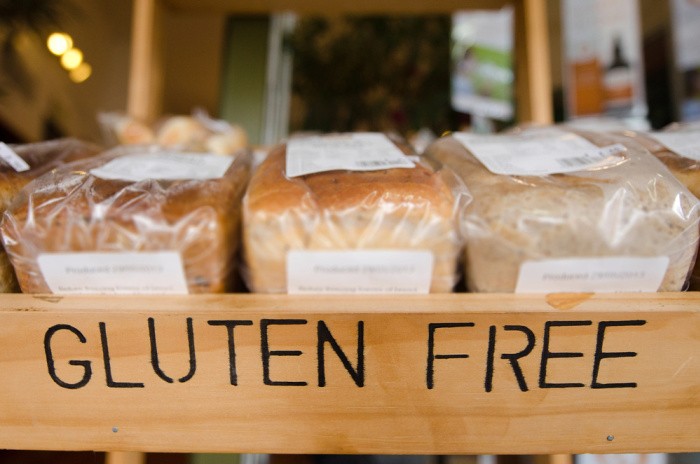

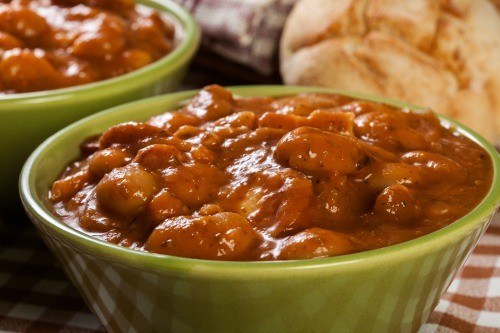
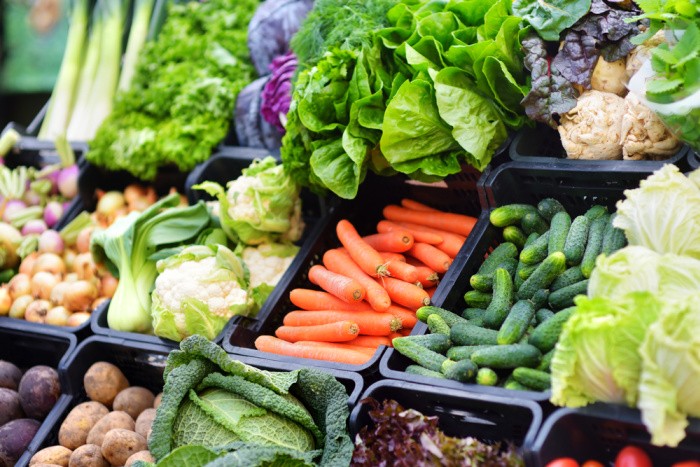
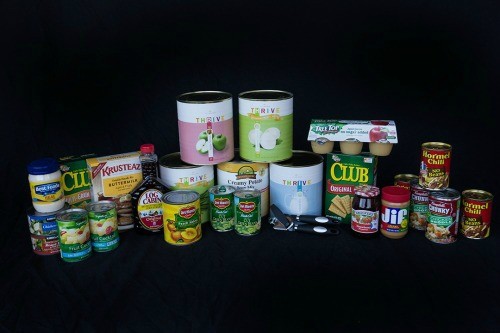
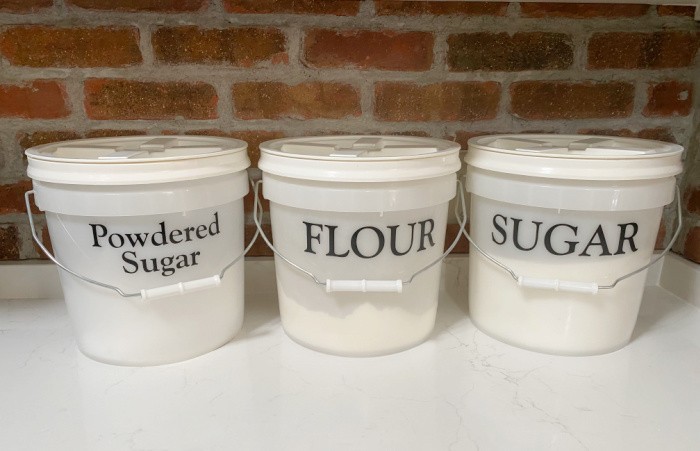
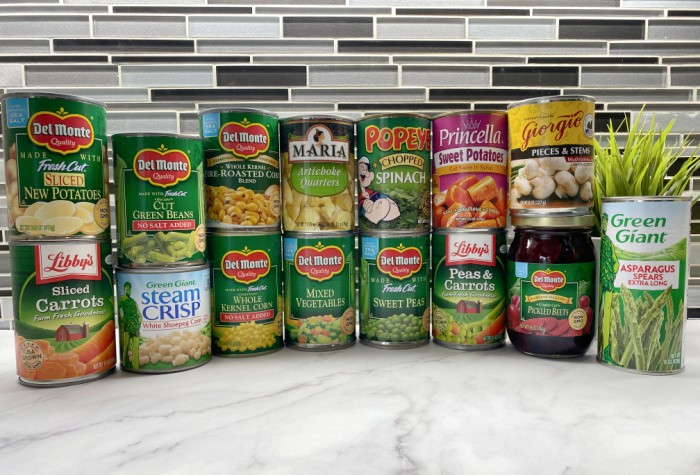
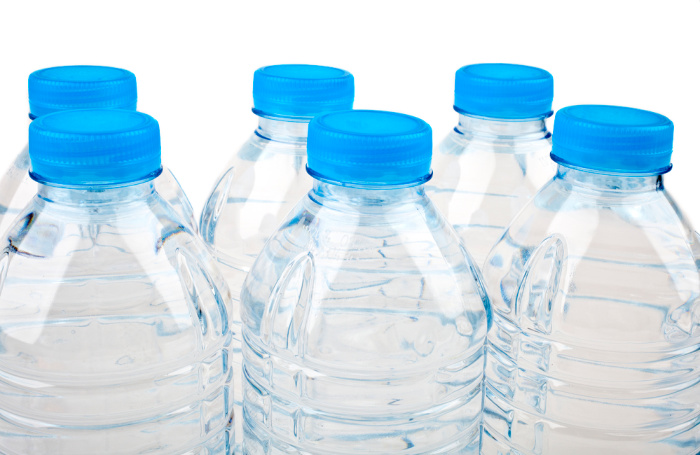
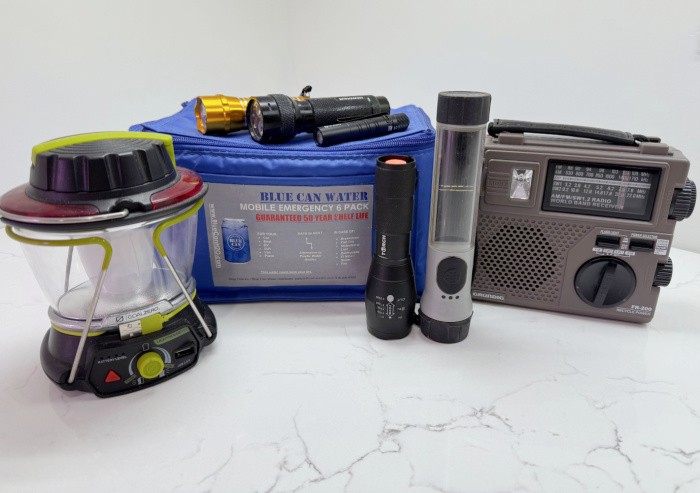
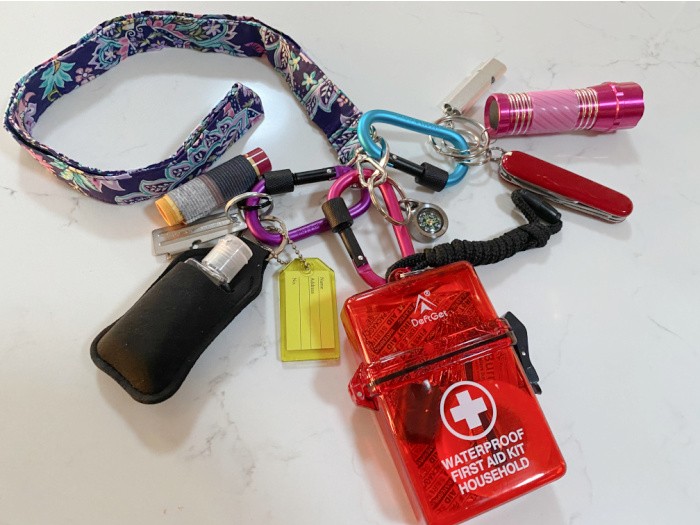











Good morning Linda. This is an excellent and timely article for those who must have a gluten free diet. I can add one further disease to this list, that is still in research, but human testing is showing great promise. Seizure disorders in infants and children. Those too young for normal medication regimes, it must be gluten free as for those with Celiac disease. Were the worst to happen, a total loss of manufacturing capability, this research may help those children to survive and possibly thrive without pharmaceuticals, or far fewer of them. Research beyond early childhood has not become available at this time, but may allow some adults to survive without their medication, for longer. For those who aren’t versed in the most severe forms of epilepsy, frequent severe seizures cause further brain and/or neurological damage, resulting eventually in death. When prepping for the long term survival of those dependent on Dilantin and other pharmaceuticals beyond what can possibly obtained and saved. Some medications lose potency and may breakdown and become toxic after prolonged storage, so there is that to consider as well.
As we know there are some herbal, Chinese and Ayurvedic medicinals that may help, but be less effective, but worth considering, and learning as well. When prepping for long term or permanent loss of medications, advanced medicine and even physical or surgical intervention must be studied and prepared for. For example, during colonial frontier times, some seriously wounded hunters, scouts, and war injuries were successfully treated by those who’d been trained by previous generations of settlers. Even some who had been literally scalped by those who were seen as enemies. So it as important as prepping for food and survival, to prepare future healthcare emergencies, as well. My personal belief is, that we should consider a library of hard copy books on every possible subject we would need to know as long term survivors. Medical training use (sterile technology, disease treatment and prevention, and background history), mechanical agriculture (and use of non chemical fertilizers, crop rotation, and non pesticidal means of protection against pests and diseases, using greenhouses, fruit production)food preparation and preservation, wind power, mechanical repair, building techniques, the making and using of pottery, maintaining condition of those metal items we possess and fabrication of replacements (blacksmithing and metal working), sanitation and plumbing technologies, basic electric, water, and solar power, for basic needs, hot water, and indoor heating, (the Romans had methods of heating large structures in colder climates) and cooking was good, That’s all and educational reading, writing, arithmetic (without computers) science government and history training books. We wouldn’t have to be returned to the Iron Age, if we retained libraries of information and skills best suited to what we need to survive and the stepping stones to further technological advances down the road. We must also keep teaching and training the next generation’s abilities to use these resources. We can’t use them as necessary day laborers, when they must learn to read and use these libraries and training to continue and improve their ways of live. Trading knowledge and technology as marketable skills. Using mechanical technology might suit our needs at the beginning, but their future will extend to further use of technologies we put on the shelf against future times. Thibngs vital to survival, and long term thriving. We don’t have to go back to the Stone Age we can maintain ourselves by going back to using technologies in common use in America until as late as the late 1950’s. We don’t have to die out by no longer have the skills and knowledge of more advanced technologies and ways of life, if we can retain the means of regaining them at a future time. Certainly the weaker, will die, but the stronger survive, and war doesn’t need to be the way of survival either. It’s better to work together, trade. share, and prevent inbreeding, and some methods of contraception that,we know are dangerous to long term health. To me this is just as important as saving supplies against needs we know will eventually run out, or technologies we can’t replace (fossil fuels),
Hi MaryAnn, oh chills when down my arms when you started talking about seizures in children. I have seen first hand what can happen when the doctors cannot figure out why children are having non-stop seizures. They try different medications, surgeries and then some of the kids were worse off, having 500 seizures a day. I have watched a documentary after seeing toddlers go through horrific surgeries and not get better. I’m sure some may have gotten better. I didn’t see any myself get better. One in fact passed away. I wonder if gluten was an issue, I’m not in the medical field at all, but I read alot, but it does make you wonder. I totally agree we must have hard copies of book on many subjects in order to survive without technology. If our power grid goes down and it will, it’s inevitable, we won;t be able to “Google” anything. Great comment, my sweet friend, we really do need to be diligent in learning skills and stocking up on materials we can use now and in the future. Linda
This information is wonderful. I would say that all of the information can be transferred to other health issues such as an allergy to dairy or eggs. I was able to make dairy free fudge and other treats for a family with serious dairy allergies. I not only made the dairy free treats but also gave some of the ingredients as well as recipes for those treats. Now, I realize that the treats are not “nutritious foods” but it also gave the mother/wife some great ideas for furthering their food storage using dairy free alternatives.
Hi Leanne, oh you are so right about dairy allergies. I have family members who are vegan, they have to be. One in particular, since the day she was born had allergies. She’s getting close to 50 years old and has a very strict diet, her body become inflamed from some foods. It’s really hard on her. I love your comment, we do need to think about other foods that are not tolerated by many people. Thank you, Linda
Dear Linda: As always (or nearly), your timing is amazing! We gluten-free eaters at the Stotts household have been experiencing exactly some of the issues you mentioned. Last weekend, our church had a wonderful church dinner provided by some dedicated people who serve dinners to large groups on a regular basis. I asked if there would be any gluten free foods available ahead of time, since so many other occasions, the pot luck dinners were all wheat based and left us with nothing but a tiny piece of watermelon for dinner while everyone else had plenty. Anyway, the dinner was amazing, and all we really had to skip were the rolls and keep our dessert consumption to my own “berried jello” that I make with Knox Gelatin or an organic version of the same (and our own home-grown berries. We were home free for once! OR SO WE THOUGHT!!
After the meal, I thanked the couple that prepared that amazing pork roast with golden barbecue sauce on it, and thanked them profusely that they created a meal even gluten-free eaters could eat safely. The wife THEN tells us, “Well not really, because the barbecue sauce was not gluten free!!” We found that out for sure after going home that night, as I did O.K., but my husband had severe heartburn and on fire “guts” the entire sleepless night, and was in severe pain! Just goes to show that even the best attempts to help you out, STILL need to be double-checked to guarantee you will not get very sick from their food!!! On the other hand, I did not get sick from the barbecue sauce, but my husband had also eaten some homemade carrot cake made with gluten-free grains. You would have thought that would be good enough, but the tiny bit of eggs in that recipe only made the gluten reaction that much worse, since he’s allergic to eggs as well. BUMMER! That’s what he gets for eating things simply because they are yummy, rather than thinking of his health. He KNEW better about the carrot cake, I assure you!!
Hi Joyce, I’m glad you brought this up about the BBQ sauce was not gluten free. I had a reader send me a private email about Vitamin D3 (some brands) have wheat in them. Her doctor recommended Vitamin D2 as I remember because that brand had zero gluten in it. I wish she had added it in our comments because it would have helped all of us. It goes back to read the labels. Of course, the family that made the pork roast didn’t realize that even a very small of amount of wheat can be toxic to some people. OH and the eggs in carrot cake, darn, they could have made it with applesauce instead of eggs. But the cream cheese frosting wouldn’t be good either for those who can’t have dairy. It really does make you think about what goes into recipes. Thank you for sharing. This is critical for so many families. Linda
Hey, Linda: As you know, I am a Certified Natural Health Professional, which means I am NOT a doctor or anything, but I tend to know quite a lot more than the average Joe on the street…about natural medicine and about nutrition. Thank God that I do, or we would be in sad shape over here with all of the food sensitivities! ANYWAY, we faithfully take D3 and NOT D2 because D2 is a synthetic product produced by Big Pharma, I believe, but don’t quote me on the Big Pharma part. Drs. love to suggest that you almost always use synthetics instead of what you body can actually use well. After all, that is their med. school training!!….Anyway, even with all of the food allergies we have in this family, none of us has ever had a wheat reaction to the Vitacost brand nor the Carlson D3. We use them both, and I can tell you that a LOT of people need a LOT more of D3 to get into the “adequate” range. You see the powers that be that tell you how much D3 is good for you (inside the supplement) are a total JOKE! Lots of people take a LOT more D3 than what is recommended. I personally take 10,000-15,000 ius faithfully a day, which only brings me up to 65,000 in my blood, which is in the good range for health and anti-cancer, anti-virus help in the body, but still near the bottom of the “protected” range. However, even taking 15,000/day has never brought me up to a very high (i.e. “dangerous”) level that fear-born doctors like to scare you with! I have heard some natural docs say, however, that everyone should be either on 10,000 ius/day or 15,000 ius/day at least for those of us who live in cloudy environments. It all depends on how much sun they get outside on a regular basis. Since I am a cook, a busy wife and mother (older), and am on the computer a lot, I do just fine with the 15,000/day, though sometimes I will go down to 10,000 just to be careful! Just sayin….that is something people should think about when they are prepping for supplements for a SHTF scenario! Don’t short yourself on Vit. D3 or you will suffer and start catching every virus that comes down the pike!! Vit. D3 is also very protective in many other ways, as well. D2 does not give you that same level of protection, so just READ the LABELS to see where it comes from!!!
Hi Joyce, I’m with you, we know our bodies and hopefully realize what our body needs. I get blood tests once a year, and my doctor may suggest some things some I follow most I do not. But I can’t get refills of 2 prescriptions without the yearly blood tests. I have a folder with all my blood tests from over the years and I can tell what is needed and not needed. My Glaucoma is another issue. That one is frustrating. Linda
Linda,
Good information as usual. We are well aware of “read the labels.” Pat has gluten intolerance. Gluten gives her joint pain. We also have a good friend who has celiac. So, there is very little gluten around our household. We have found a keto bread that she can tolerate and I love it. It has zero net carbs and only 35 calories per slice. Somehow, the company uses some process to retain certain features of the included wheat but somehow strip out the gluten. Pat has no problems eating that bread. The only problem is that it is a small one pound loaf for almost $6. LOL!
Hi Harry, isn’t it funny the best foods in life cost so much money? One pound loaf is $6.00? I wrote a post about making gluten free bread and said it’s way too expensive to make so I mentioned just buy it at Costco! LOL! Linda
My younger daughter has Celiac Disease, Marsh 4 – the worst level you can get. If she gets any cross contamination, she’s in the hospital. My oldest daughter is Marsh 1, nothing affects her; she’s fine with gluten. I’ve learned alot about this disease and hyper diligence is the key to surviving it. As an example, Costco has $5 rotisserie chickens – do NOT eat those! They have gluten on them in the spices! On the other hand, the processed rotisserie chicken meat in the package is totally safe and states on the label that it is gluten-free. Who woulda thunk it? McCormick spices are almost all certified gluten free. They have a few that aren’t and they specify that. “Spices” on any label can be dangerous. You have to know “what” spices, etc. Don’t assume anything. I have only McCormick spices in my house just in case I make something for my daughter without planning ahead. If you see a label that has a circle with a GF in it, then it’s “certified” gluten-free. Still, I read labels, EVERY label! I have found sources that have certain items like WalMart and Costco are the best. Costco doesn’t have alot of GF items but my daughter says their bread is wonderful. 2 loaves for $10 and they’re a decent size, not the puny Udi’s you get at Walmart. Walmart has GF egg noodles. Everything GF has jacked up prices tho. It’s really hard for my daughter to be able to afford groceries. You can go to Whole Foods, Sprouts, etc. and find GF items but ouch, the cost. However, sometimes, you gotta do what you gotta do!
HI Robbie, wow, this really interesting and scary at the same time. I can’t imagine how you fix meals at least with spices or bread. I’m just thinking out loud, fruits, vegetables, and meat with zero spices or the spices you know are okay!! Wow, what a chore. I’m glad you learned how dangerous certain foods that are unsafe. Linda
Oh, I forgot…gluten is in EVERYTHING! or can be. It’s in makeup, medicines, shampoos, vitamins, everything! Be super careful about anything you consumer or put on your body!
Hi Robbie, yes, I have heard makeup, medicines, shampoos, vitamins and just about everything in a box or a bag may have gluten or processed in a wheat environment. We must be careful, Linda